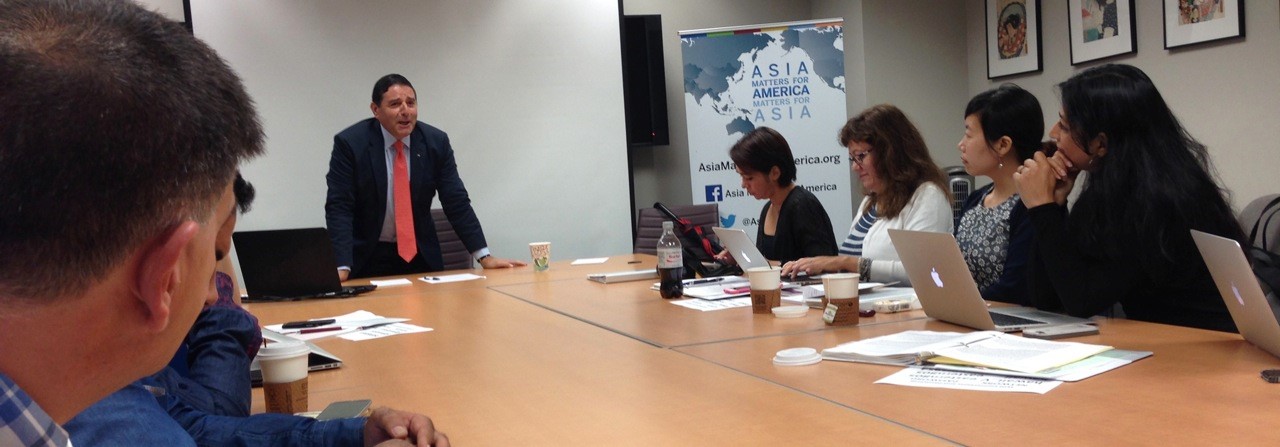
WASHINGTON, D.C. — Much of my seminar is focused on foreign affairs, specifically U.S. relations with the Muslim world. But do most Americans even care about these issues? According to Akram Elias, president of a Washington-based international consulting firm, the Capital Communications Group, studies show that at least 95 percent of Americans have little or no interest in foreign policy. Elias spoke to our group on “American Federalism, Separation of Powers and Congressional Influencers.” His lively presentation was much more interesting than the title suggested.
Elias said U.S. domestic policy “almost never originates with the government.” Rather, civil society networks—nongovernmental organizations and advocacy groups—generate domestic policy and push it forward.
In stark contrast, he asserted that “almost every single foreign policy and security policy issue originates with the government.” Of the five percent or less of Americans who are interested in those things, most come at it from a business or trade point of view. The net result is that very small numbers of average Americans have input in the nation’s foreign affairs, while those with specific agendas have a disproportionate influence. This is something Elias believes works against the pursuit of the common good.
Right now, there is a lot of advocacy around the Iran deal. In recent years, faith-based groups have been involved in international issues, including religious freedom and human rights, war and peace, trafficking and humanitarian concerns. But by and large, these activities are exceptions to the rule.
Later in his presentation, Elias spoke about what he described as Americans’ “ingrained” mistrust of government. “We understand government is a tool…a basic necessity,” he said, “but we don’t like to give it too much power.”
This led one of my seminar colleagues, Jawad Sukhanyar, who writes for the New York Times in Kabul, Afghanistan, to ask an interesting question: If Americans mistrust the government so much, why do so many of them leave foreign policy decisions in the government’s hands without input?
